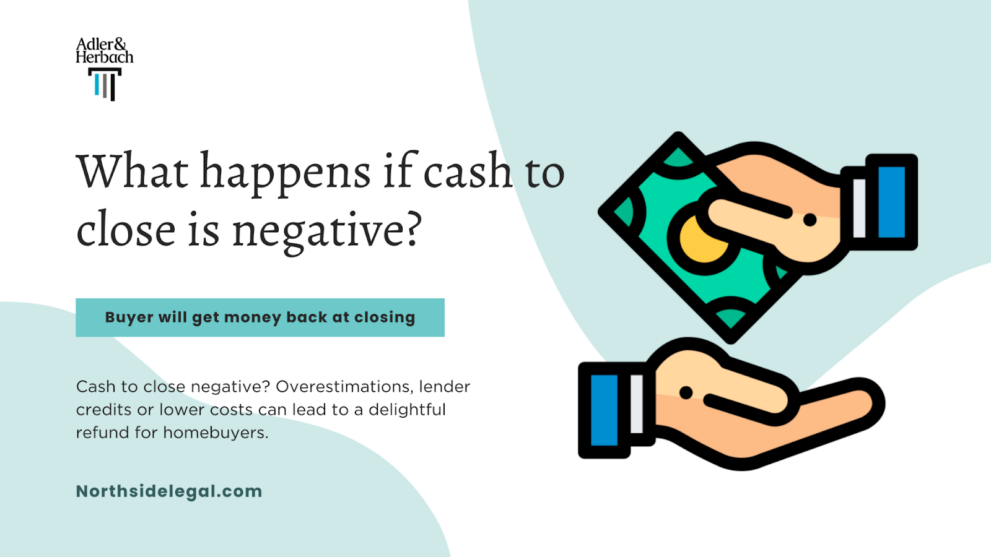As you go through the mortgage application and underwriting process to purchase a home, the lender will provide an initial estimate of your “cash to close” requirements for the down payment, closing costs, prepayments of taxes and insurance, and any other associated expenses. This gives you a target amount to budget and save for to gather the funds needed by the closing date. But what if after crunching the final numbers, your calculated cash to close amount ends up being negative? What does it mean for buyers when cash to close is less than $0 – is it a cause for concern?
What Happens If Cash to Close is Negative For a House?
When cash to close turns out to be a negative amount, it generally indicates that the buyer will either receive money back at closing, or have leftover overpayment funds following the transaction. This unusual situation can happen for seller concessions, lower mortgage fees, lender incentives, and overestimated expenses by the buyer.

- The seller is offering closing cost credits or concessions, including tax prorations, that exceed the actual amount of the buyer’s closing costs. This results in overage funds after seller credits are applied.
- If mortgage interest rates dropped between the time of loan application and closing date, prepaid finance charges would go down, reducing cash to close.
- The lender may be providing a lender credit or rebate toward the buyer’s closing costs as an incentive, lowering the buyer’s outlay.
- Closing costs like title fees, escrows, or prepaid insurance/taxes came in lower than originally estimated by the lender, creating a surplus at closing.
- The buyer overestimated their total cash to close needs early in the process, and ultimately over-saved for their down payment and closing expenses.
In any situation where the final cash to close calculation results in a negative amount, the overpayment gets refunded back to the buyer at closing.
For example:
- Buyer sent funds based on an initial cash to close estimate of $15,000
- But at closing, actual costs were just $12,000
- So the buyer would receive a $3,000 check or wire at closing.
While atypical, this scenario is welcome news for buyers, as it means they will use less cash than originally budgeted for at the closing.
Learn more about
Conclusion
Maintaining open lines of communication with your lender and real estate professionals, as well as confirming final figures in the days leading up to closing helps avoid any financial surprises or shortfalls at settlement. Even in cases where cash to close turns out lower than expected, understanding the behind-the-scenes details allows for smooth planning and preparation.


